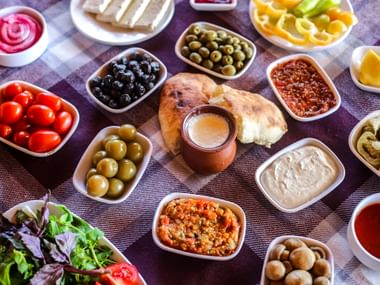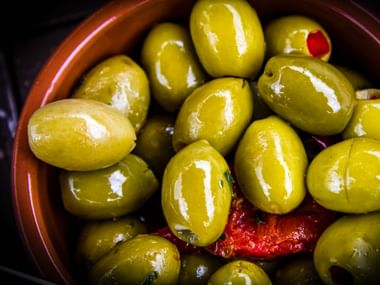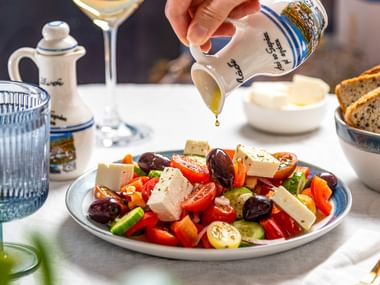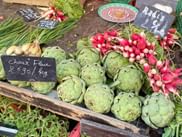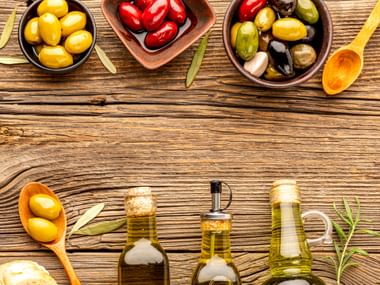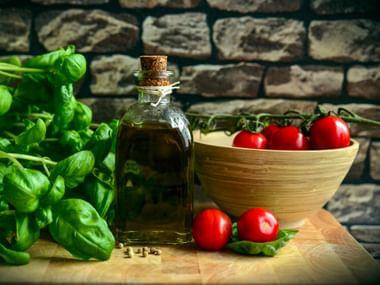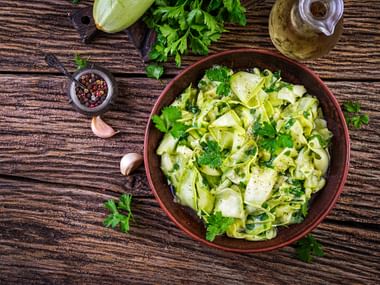Ingredients for the salad (approx. 4 portions): 100 g buckwheat, 200 ml water, 1 teaspoon vegetable stock, a handful of cherry tomatoes, 1 large zucchini, 1 orange, black and green pitted olives, sun-dried tomatoes, sliced almond, pine nuts, ½ packet feta sheep's cheese, fresh rocket salad to taste, chicory salad to taste
Ingredients for the dressing: 2 tbsp organic cloudy apple cider vinegar, 3 tbsp extra virgin olive oil, 2 tbsp lemon juice, 2 tsp capers, herbs such as basil, parsley, oregano, 1 tsp sugar-free mustard, salt and pepper, chili powder to taste
Preparation method: Cook the buckwheat in water with vegetable stock according to the package instructions. Cut the tomatoes, zucchini, olives, and orange into small cubes. Drain the sun-dried tomatoes and cut them into thin strips. Cut the feta cheese into cubes. Wash and drain the lettuce. Roast the almonds and pine nuts in a pan until lightly browned. Mix or blend all the ingredients for the dressing, then season to taste. In a large bowl, combine the cooked buckwheat, diced vegetables, feta cheese, and tomatoes with the dressing. Gently fold in the salad greens. Arrange the salad on a serving plate. Sprinkle the roasted almonds and pine nuts over the salad. Serve and enjoy!



